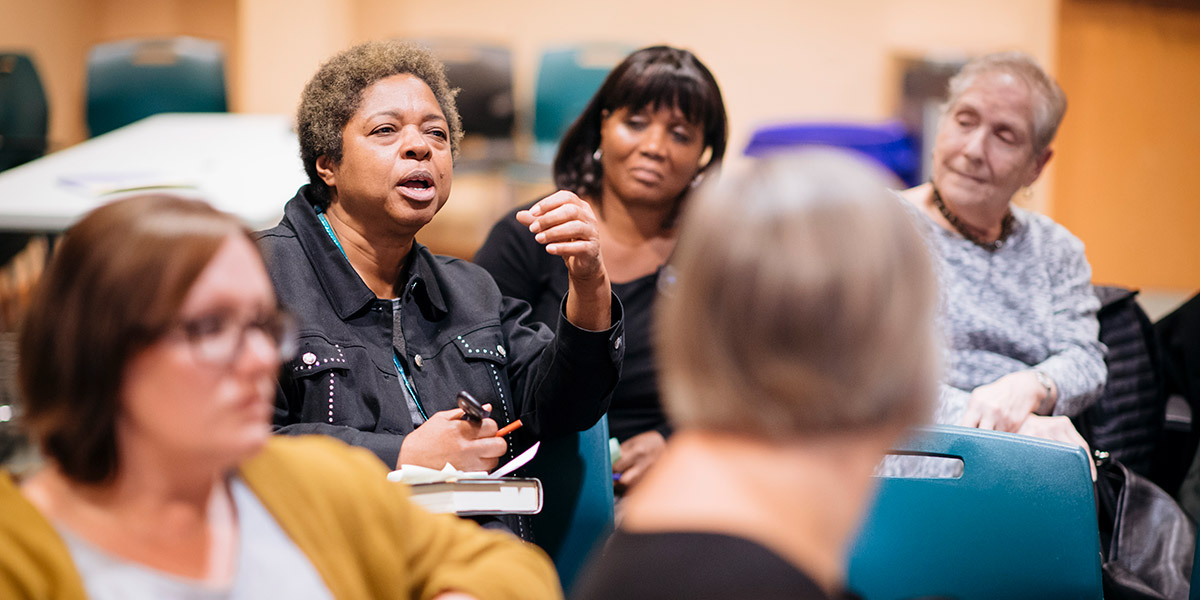
Our MISSION
At the New Jersey Council for the Humanities, we explore, cultivate, and champion the public humanities in order to strengthen New Jersey’s diverse community.
We don’t often think of the humanities as our best hope for building a better future, but that’s exactly what they are.
They allow us to break free from the limitations of our individual experience and to see both the perspectives of others as well as the larger social forces that affect us all. They provide opportunities to make history relevant and encourage diverse audiences to reflect on the shared human experience.
We often encounter the humanities as part of our formal education. They include familiar disciplines such as history, literature, and philosophy, as well as those less common (jurisprudence, we’re thinking of you!). But it's the public humanities which take these subjects out of the classroom to ensure that the critical thinking and reflection that accompanies the humanities is accessible to wide and diverse audiences. The public humanities programing offered by cultural institutions like NJCH, are typically, associated with four foundational areas:
HISTORY
Learning about those who came before us nurtures our identities as individuals and members of a community. Through history we also see the consequences of decisions and learn how to evaluate outcomes, providing us with tools to build a better future.
VALUES
Values are ideals we deem important. Examples of values include concepts such as equity, discipline, open-mindedness, independence, loyalty, and respect. Since they govern the way we live our lives and the decisions we make, it is important to consider and clarify our values.
CULTURES
The products of culture take many forms from fine art and classic novels to streaming television shows, rock music, comic books, and romance novels. We study them for the sheer joy they bring. But cultural products can also shed light on unstated assumptions and allow us to see ourselves and our society more clearly.
BELIEFS
Beliefs are those core assumptions which underpin our worldviews and ultimately shape our actions. Beliefs are informed by our experiences, but need not be limited by them. The humanities are a source of differing viewpoints, taking us beyond our individual circumstances and allowing us to see situations and ideas from another’s perspective.
Our Values
Our work is guided by the following foundational values:
- We open doors to opportunities for discovering, listening, challenging assumptions, and fostering understanding.
- We appreciate all voices within the context of civil, informed, and respectful exchange.
- We invest our resources and attention responsively, responsibly, and honestly.
- We facilitate shared ownership in the creation of knowledge, ideas, and practice.


